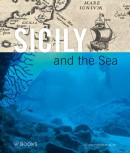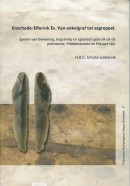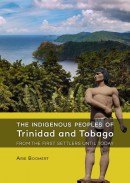Product informatie
- ISBN 9789088903977
- ISBN 10 9088903972
- Druk 1
- Bindwijze Paperback
- Taal Engels
- Onderwerp Archeologie
- Beschikbaar sinds 1 December 2016
Samenvatting
In prehistoric Europe hierarchic societies arose and developed technological systems and processes in the production of objects related to everyday use, on the one hand, and items of religious and symbolic character emulating prestige and luxury, on the other, while both types of objects may not always be clearly distinguishable. This volume deals with questions of how artisans and other social groups, involved in these productive processes and social practices, reacted to and interacted with the demands connected with elites identities formation, affirmation reconfirmation practices. Innovations and the development of new technologies designed to satisfy the needs of ostentatious behaviour and achieving prestige are key issues of this volume. For example, how can we identify the consequences ... of such processes, how can we define the role(s) that the craftspeople played in such contexts, and are these always as clear-cut as usually portrayed? The book\'s common aim is to investigate the economic, socio-political, as well as the technological contexts and backgrounds of the make-up of material culture and technologies in these periods. We examine which role(s) artisans may have played in status and identity formation processes, in rituals and in symbolic performances, in other words, in each aspect of life and death of selected Chalcolithic, Bronze and Iron Age populations in Europe. Many aspects of the social interaction patterns between the different groups of people in those periods have not been adequately discussed and investigated, especially the artisans\' important role(s). This volume aims to redress these imbalances by investigating how social groups interacted with each other, and how we may recognize such interactions in the material remains. about the editors:Ann Brysbaert is Associate Professor/Reader in Archaeological Sciences and Material Culture Studies at the Faculty of Archaeology, Leiden University where she is the Principal Investigator for the ERC Consolidator Grant funded project SETinSTONE (2015-2020). Previously, she held permanent and senior research positions at the University of Leicester (Museum Studies), Glasgow University (Dept of Archaeology), Heidelberg University and Leiden University, and has been Professeur Invitée at the University of Bordeaux Montaigne, France. Her main publications to-date are: Material Crossovers: Knowledge Networks and the Movement of Technological Knowledge between Craft Traditions. London: Routledge (2014, with K. Rebay-Salisbury and L. Foxhall); Tracing Prehistoric Social Networks through Technology: A Diachronic Perspective on the Aegean. London: Routledge (2011); Power of Technology in the Bronze Age Eastern Mediterranean. The Case of Painted Plaster. (Monographs in Mediterranean Archaeology, 12), London: Equinox Press (2008). She is currently finalizing: Tracing Local, Regional and Interregional Craft Networks Viewed through a Technological Lens at Late Bronze Age Tiryns. A Comparative Mycenaean Workshop Study. (Universitätsforschungen zur Prähistorischen Archäologie. Reihe Heidelberg). Bonn: Rudolf Habelt (with M. Vetters). Alexis Gorgues is Associate Professor in Late Prehistoric Archaeology at the University of Bordeaux Montaigne. He was previously fellow of the Casa de Velázquez (Ecole des Hautes Etudes Hispaniques et Ibériques, Madrid, 2003-2005), and Assistant Lecturer at the University of Toulouse 2- Jean Jaurès. He directed excavations in Southern France and Spain, on Late Bronze Age and Iron Age settlements as well as in potters\' workshops. His main publications to date are (with P. Moret and J.A. Benavente Serrano) Iberos del Matarraña. Investigaciones arqueológicas en Valdeltormo, Calaceite, Cretas y La Fresneda (Teruel), (Al-Qannis, 11), Alcañiz (2006) and Economie et société dans le nord-est du domaine ibérique, (Anejos del Archivo Español de ArqueologÃa, LII), Madrid (2010).
Meer boeken met de onderwerpen Archeologie
Veel gestelde vragenmeer antwoorden
Hoe werkt Resale.nl?
Je kunt op de website advertentie(s) plaatsen van de boeken die u wilt verkopen. Een potentiële koper neemt dan contact met je op om samen een prijs af te spreken en de transactie verder af te handelen. Houdt hierbij onze aanbevelingen voor een veilige transactie in gedachten en voorkomt dat je slachtoffer wordt van oplichting.
Hoe kom ik in contact met de verkoper?
Je kunt een reactie versturen door bij de betreffende advertentie van de verkoper op de knop ‘doe een bod’ te drukken. Je kunt nu een bod doen op de advertentie en een persoonlijk bericht toevoegen. Het verstuurde bod brengt je in contact met de verkoper via e-mail.
Wat zijn de kosten voor het verkopen van mijn studieboeken?
Je kunt geheel gratis gebruik maken van de diensten van Resale.nl. Resale.nl haalt zijn inkomsten uit advertenties.
Hoe kan ik een boek kopen?
Resale.nl werkt globaal op de volgende manier:
- Zoek via het zoekveld het studieboek dat je wilt kopen.
- Uit de zoekresultaten kies je het studieboek waar je geïnteresseerd in bent.
- Op de detailpagina van het studieboek kun je een overzicht vinden van de personen die het studieboek verkopen.
- Je kunt nu een bod plaatsen door op de button te klikken. Het bod wordt via e-mail aan de verkoper verzonden.
- De verkoper van het studieboek neemt contact met je op door een reactie te geven op het bod dat je hebt verzonden. Met de verkoper kun je gezamenlijk een prijs afspreken. Houdt hierbij onze aanbevelingen voor een veilige overdracht in gedachten en voorkom dat u slachtoffer wordt van oplichting.
Hoe weet ik wat ik koop?
Om te achterhalen of wat je koopt ook daadwerkelijk is wat er wordt geadverteerd is het verstandig om bij de verkoper langs te gaan en het aangebodene te bezichtigen. Doe je dit niet, dan loopt je een zeker risico. Onder het kopje ‘Hoe kan ik de kans op misbruik verkleinen’ kun je meer over dit onderwerp vinden.
Kopers over Resale.nl
bart van gijsel
"Ik ben erg tevreden over deze verkoper de familie thus. Goede snelle levering."
Patrice Michel
"De verkoper heeft er alles aan gedaan om het door mij bestelde product zo snel mogelijk naar mij toe te krijgen. Heeft me van iedere stap op de hoogte ..."
marjolein
"Besteeling snel bezorg, in goede staat net zoals beschrijving en goede communicatie met verkoper!"
marjolein
"Goed contact, snel en in goede orde ontvangen. Staat van het boek was zo goed als nieuw!"
hilda1
"goede medewerking en hulp dank u wel"
Tineke
"Het bestelde werd netjes en snel afgeleverd. De prijs was goed."
stacy
"Goed verpaktBoek ziet er mooi uit"
elisa
"Goede levering alleen jammer dat er niet bij was gezet dat er al in geschreven was"
Elly
"Verkoper reageerde snel op mijn emails en heeft ook het boek snel opgestuurd.Het boek was niet van nieuw te onderscheiden. Was waarschijnlijk niet gebruikt. ..."
Gerard+[2]
"Prettig contact gehad en goed zaken kunnen doen."








